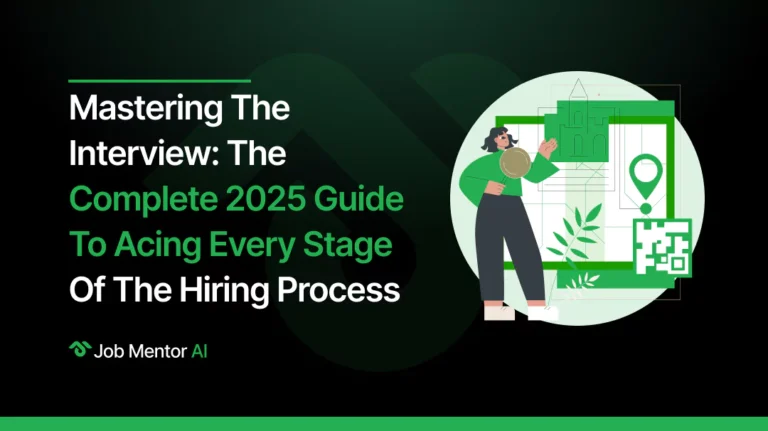If you freeze when someone asks, “What is your desired salary?”, you’re not alone. Many job seekers rank this as the single most stressful part of an interview. The wrong answer feels risky: if you ask for too much, you could be ruled out. If you ask for too little, you may undersell yourself and live with the regret of being underpaid.
The good news is that this question doesn’t have to be intimidating. With the right preparation, you can answer it strategically, showing that you know your value, understand the market, and can communicate with confidence. In this guide, we’ll break down why employers ask about salary expectations, how to research your range, and the smartest ways to respond. Think of it like approaching other tricky interview questions such as why you want a new job. Success comes from balancing honesty, professionalism, and strategy.
What are “Desired Salary” and “Desired Compensation”?
Desired salary refers specifically to the base pay you expect for a role. It’s usually expressed as an annual salary or hourly rate, such as: “My desired salary is $85,000 per year.” This figure is the straight cash amount you hope to earn, without factoring in any extras. Employers often ask for this to quickly understand whether your expectations align with their budget.
Desired compensation, on the other hand, represents the total package. It goes beyond base pay to include benefits and perks like performance bonuses, stock options, retirement contributions, health coverage, vacation time, commuter support, and flexible schedules. Sometimes, a role with a slightly lower salary but stronger compensation perks can actually deliver more long-term value.
Employers also value candidates who think beyond just the numbers. Considering things to bring on the first day alongside salary expectations demonstrates a holistic approach to the role and signals professionalism. This perspective shows that you’re focused on building a sustainable career rather than just short-term gains.

Why Employers Ask About Salary Expectations
When you hear this question, it may seem challenging at first. From the employer’s perspective, though, it’s a practical and necessary part of the hiring process. Companies ask about salary expectations for five main reasons:
- Budget alignment – Every role has a compensation band. Hiring managers need to know if your target falls within their salary range before the process moves forward.
- Market awareness – Your response shows whether you have a realistic understanding of what someone with your skills, level, and experience should earn.
- Negotiation style – How you handle the question gives them a preview of how you’ll negotiate when an offer is on the table. Calm, clear, and professional answers inspire confidence.
- Candidate motivation – Your salary expectations can reveal how genuinely interested you are in the role versus just chasing the highest offer. If your number matches their range, it signals alignment of priorities.
- Long-term fit – Employers want to avoid turnover. If your expectations are far above their budget, even if they hire you, you may leave quickly for a better-paying job. Demonstrating realistic expectations helps prove you’re a sustainable hire.
The key mindset shift: this question is a standard part of the process. It’s your chance to share a researched range while showing flexibility and professionalism. Just like with
How to Research and Set Your Salary Range
Walking into an interview without a number in mind leaves you vulnerable. You don’t need an exact figure, but you do need a thoughtful range. Here’s how to set one:
1) Research the market range
Start by gathering salary data from multiple sources. Use job boards with salary transparency, salary research sites, professional associations, and even conversations with peers. Look for matches based on job title, years of experience, industry standards, company size, and location or remote pay policy. The more sources you compare, the more confidence you’ll have in knowing what’s realistic.
2) Factor in your unique value
Adjust the market range to reflect your strengths. If you have advanced certifications, scarce technical expertise, leadership background, or a record of driving results, you can reasonably aim toward the higher end of the range. Think of it as adding a premium for the extra impact you bring that not every candidate can offer.
3) Define your floor, target, and reach
Set three levels for yourself: a floor (the lowest number you’d accept), a target (your ideal figure that reflects your worth), and a reach (the high end you’d expect if the company strongly values your full contribution). Having these numbers prepared in advance prevents you from making hasty decisions under pressure.
4) Translate into a tight public range
While your private spread can be broad, keep your public answer narrow. Sharing something like $85,000–$92,000 shows you’ve done your homework and signals flexibility without boxing yourself in. Employers appreciate it when candidates present a clear range because it shows preparation without rigidity.
5) Prepare proof points
Back up your range with evidence. Highlight three to five examples of measurable impact, such as boosting performance metrics, managing budgets, or saving company resources. Concrete results make it easier for hiring managers to justify offering you the higher end of your range.
These proof points strengthen your case for landing the higher end of your range. After all, interviews are about showing impact, and the same principle applies when making a great first impression in a job interview where clear, results-driven examples always stand out.

Smart Ways to Respond to “What is your Desired Salary”
Now comes the application. The way you answer should depend on the stage of the process. Below are practical approaches and ready-to-use scripts you can adapt to your style.
Early-stage deflection (buying time)
“I’m really excited about this opportunity and the chance to contribute. Before we dive into numbers, I’d love to understand more about the role’s scope, expectations, and success metrics. Once I have a clearer picture, I can share a range that’s well aligned with the position and the value I can bring.”
Pivot to total compensation
“For me, it’s important to look at the full package, not just base salary. I consider things like bonuses, equity, health benefits, and professional growth opportunities. Could you share how compensation is structured for this role so I can give you a more complete answer?”
Provide a researched range (mid-stage)
“Based on my research and what I’ve delivered in similar roles, I believe a fair range would be $85,000–$92,000. That range reflects the value I bring in terms of skills and results. Of course, I’m flexible depending on the overall compensation package and how the role evolves.”
Single number (if pressed)
“If I had to give a specific number, I’d say $90,000 would be appropriate given my background, certifications, and the measurable impact I’ve had in my past positions. That said, I’m always open to discussing the complete package to ensure a good fit for both sides.”
When they share their range
“Thank you for sharing that range, it’s really helpful. Based on my experience in [specific area], I’d be aiming for the higher end of that band if everything aligns. I believe my background positions me well to deliver results that justify that level.”
Preparing for Practice Common Group Interview Questions alongside these responses can help you feel confident handling scenarios where multiple people or perspectives are involved.
When asked about the current salary
“I’d prefer to focus on what this role is worth in today’s market rather than my current pay, since compensation can vary by company and industry. From my research and track record, I believe a reasonable range for this role would be $X–$Y. That aligns with the level of responsibility and the results I can deliver here.”
Each of these responses is polite, professional, and protects your leverage. Practicing them also reduces nerves, much like learning to stay calm in a job interview, which helps you project confidence and professionalism throughout the process.
Common Mistakes to Avoid
When talking about salary, even strong candidates can make small mistakes that hurt their chances. Being aware of these pitfalls will help you stay confident and keep the conversation in your favor.
- Answering too early. Sharing a number before you understand the role can anchor you too low. Always wait until you know the scope and expectations.
- Giving only one number. A single figure leaves no flexibility. Offering a clear range shows preparation and keeps room for negotiation.
- Undervaluing yourself. Don’t base your answer only on past pay. Focus on current market rates and the unique value you bring.
- Ignoring the full package. The salary is just one piece. Benefits, bonuses, and flexibility often add more long-term value than base pay alone.
- Sounding uncertain. Employers read confidence as credibility. Practice your response until it feels natural and steady.
- Dropping the conversation. Always close with professionalism, much like sending a thank-you email after an interview to leave a strong impression.
Final Tips and Takeaways
- Do your research first by knowing the realistic market range before the interview.
- Aim slightly high since employers often negotiate down, so anchor above your minimum.
- Adapt your language by focusing on base pay if they say “salary” and including the full package if they say “compensation.”
- Support your ask with clear links between your range, your skills, and the results you’ve delivered.
- Stay professional and show enthusiasm for the role even while negotiating.
Conclusion
Answering the desired salary question is less about pressure and more about preparation. When you know your value, understand the full compensation picture, and respond with confidence, you turn the conversation into an advantage. A thoughtful answer not only supports fair pay but also shows employers you’re professional, prepared, and ready to grow.
To strengthen your preparation, practice with an AI Interview Assistant that helps you polish responses, improve delivery, and gain real confidence ahead of the interview.
Use AI Interview Intelligence for quick, actionable feedback that speeds up progress and helps you step into interviews more focused, confident, and persuasive.
Table of Contents
Frequently Asked Questions
What are your salary expectations best answer?
The best answer is to provide a researched range that reflects your market value. For example: “Based on my research and past results, I believe a fair range would be $85,000–$92,000. That range reflects my skills, experience, and measurable impact. Of course, I’m flexible depending on the overall compensation package.”
How do you respond to What's your salary?
Instead of jumping straight into numbers, pivot the conversation. You might say: “I’d love to learn more about the role’s responsibilities and success metrics first. That will help me provide a salary range that’s aligned with the position and the value I can bring.” This shows professionalism and buys time.
How to answer an interview about salary?
Answer by considering both base pay and total compensation. A strong response could be: “For me, it’s important to look at the full package salary, bonuses, equity, and growth opportunities. Could you share how compensation is structured for this role?”
How to reply to a salary offer?
When you receive an offer, thank the employer and then align it with your expectations. For instance: “Thank you for the offer. Based on my research and the value I bring, I was aiming closer to [$X–$Y]. Is there flexibility in the package to reflect that?”
What is an example of a desired salary expectation?
A clear, professional example is: “My desired salary is in the range of $85,000–$92,000, which reflects my background, certifications, and the measurable results I’ve achieved in previous roles.”
How to answer desired salary expectations in email examples?
In writing, keep your tone polite and professional: “Thank you for considering my application. Based on my research and the scope of this role, my expected salary would be in the range of $85,000–$92,000. Of course, I’m open to discussing the full package and benefits.”
How to respond to a low salary offer sample?
Stay professional while standing your ground: “I appreciate the offer and the opportunity. However, based on my research and the value I bring, I was expecting something closer to [$X–$Y]. Is there room to adjust the offer or enhance the overall package?”
How do you negotiate my salary with HR?
Approach it as a collaborative conversation. You could say: “I’m really excited about the role and the impact I can make. Based on market data and my experience, I was targeting [$X–$Y]. I’d love to explore how we can align the compensation package so it reflects both my contribution and the company’s needs.”










